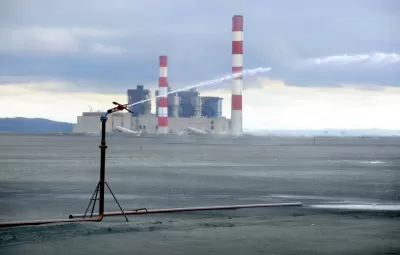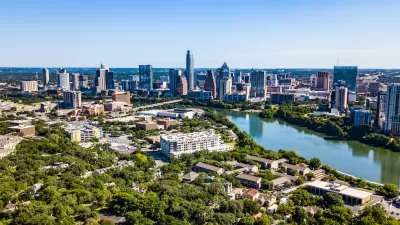Can a Democratic governor in a state controlled by a Republic legislature achieve meaningful emissions reductions from the state's energy utilities? North Carolina Governor Gary Cooper is trying.

James Bruggers reports on the changes in North Carolina in since January 2017, when Governor Gary Cooper took office:
After replacing a Republican who questioned whether climate change was caused by human activities, Democratic Gov. Roy Cooper has testified before Congress on North Carolina's sizable climate challenges and unveiled a draft clean energy plan designed to put the state on a path toward eliminating carbon emissions from the power sector by mid-century.
The state's Republic legislature has forced Governor Cooper and allies on matters of climate policy to seek short-term wins and work-arounds, however.
The example that informs Bruggers's reporting centers around Duke Energy, the biggest utility in the state, which has developed solar power for use in the state but still largely relies on coal and natural gas. A clean energy plan championed by Governor Cooper would require Duke to go further in reducing emissions from electricity generation.
Here's where the "work-arounds" referenced by Bruggers comes in. Should legislators balk at Cooper's clean energy plan, it's becoming evident that state regulators could decide to clamp down on Duke's emissions anyways.
In addition to detailing some of the initial actions of the state in siding with the governor and pressuring Duke to target more aggressive carbon emissions reduction, the article also includes a lot more detail on the components of the governor's clean energy plan.
FULL STORY: A Southern Governor's Climate and Clean Energy Plan Aims for Zero Emissions

Alabama: Trump Terminates Settlements for Black Communities Harmed By Raw Sewage
Trump deemed the landmark civil rights agreement “illegal DEI and environmental justice policy.”

Study: Maui’s Plan to Convert Vacation Rentals to Long-Term Housing Could Cause Nearly $1 Billion Economic Loss
The plan would reduce visitor accommodation by 25% resulting in 1,900 jobs lost.

Planetizen Federal Action Tracker
A weekly monitor of how Trump’s orders and actions are impacting planners and planning in America.

Federal Homelessness Agency Places Entire Staff on Leave
The U.S. Interagency Council on Homelessness is the only federal agency dedicated to preventing and ending homelessness.

Restoring Northern India’s Himalayan ‘Water Temples’
Thousands of centuries-old buildings protect the region’s natural springs and serve as community wells and gathering places.

Milwaukee to Double Bike Share Stations
Bublr Bikes, one of the nation’s most successful, will add 500 new e-bikes to its system.
Urban Design for Planners 1: Software Tools
This six-course series explores essential urban design concepts using open source software and equips planners with the tools they need to participate fully in the urban design process.
Planning for Universal Design
Learn the tools for implementing Universal Design in planning regulations.
Caltrans
Smith Gee Studio
Institute for Housing and Urban Development Studies (IHS)
City of Grandview
Harvard GSD Executive Education
Toledo-Lucas County Plan Commissions
Salt Lake City
NYU Wagner Graduate School of Public Service





























